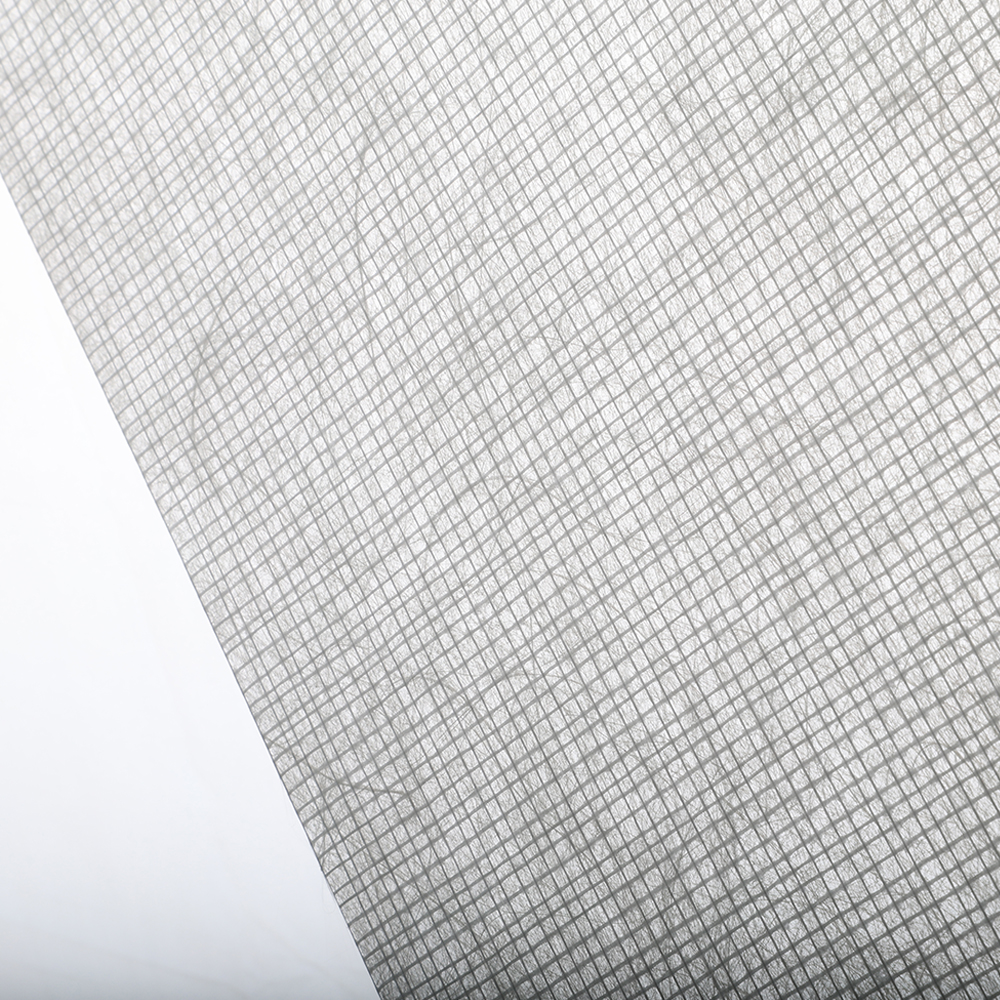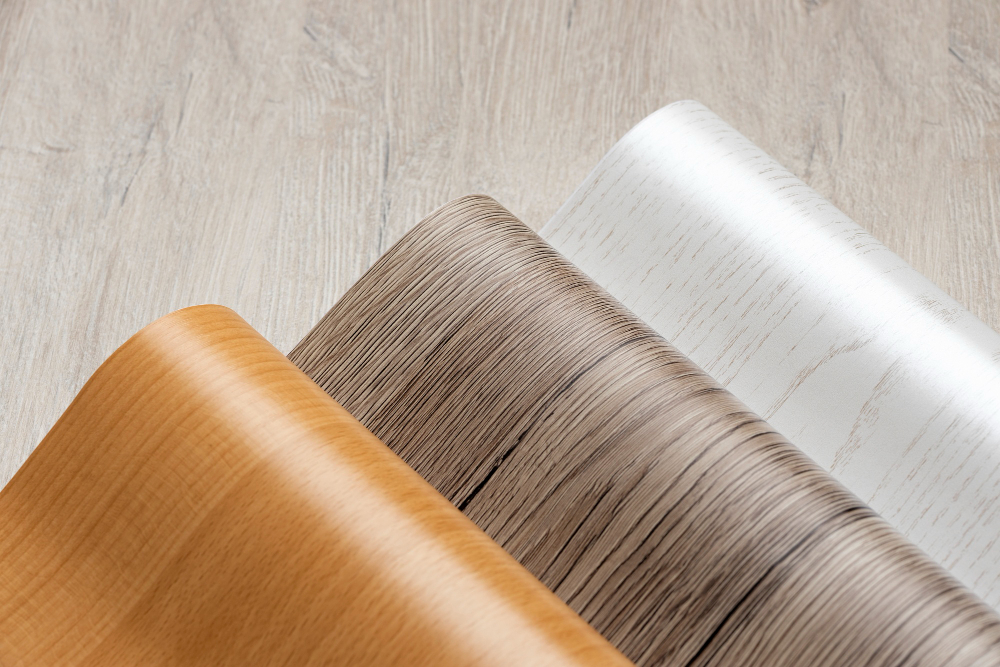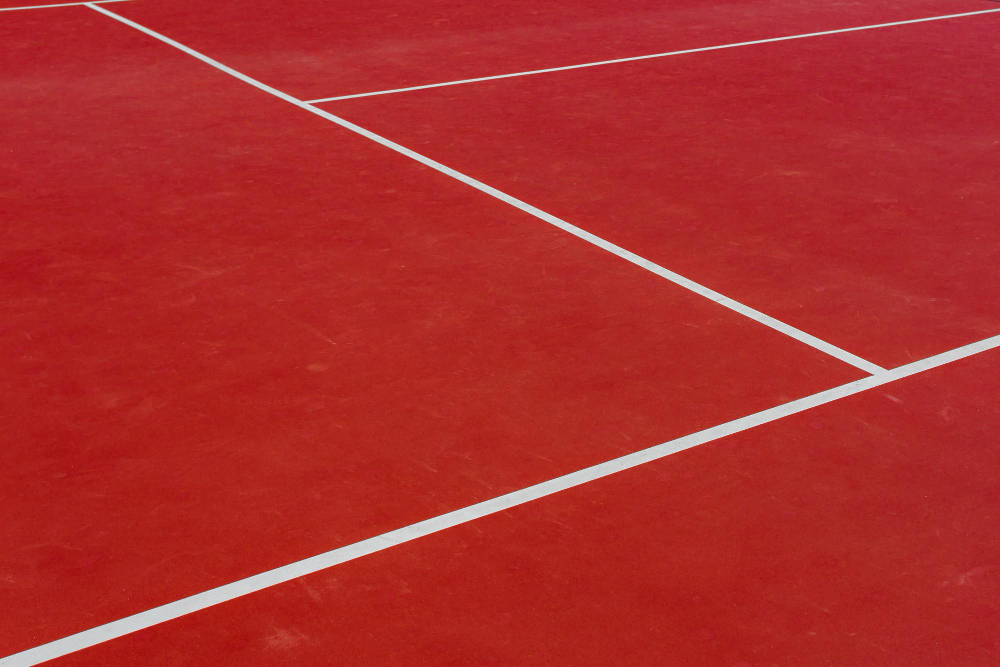Glass fiber mat with mesh is a versatile reinforcement material used in many modern floors to improve durability and stability. Essentially, a fiberglass mat is a thin layer made of glass fibers bonded into a sheet. When embedded in flooring, it adds strength, resists moisture, and helps the floor keep its shape. In this article, we will explore how fiberglass mat with mesh is used in flooring applications like vinyl, concrete subfloors and PVC sports floors.

Vinyl Flooring
Vinyl flooring, including sheet vinyl and luxury vinyl tiles/planks (LVT/LVP), often uses fiberglass mesh reinforcement for stability. Modern vinyl floors frequently have a fiberglass layer either at the backing or sandwiched in the core. This fiberglass mat stabilizes the vinyl, preventing it from shrinking, warping or curling over time. It also makes the flooring waterproof, since fiberglass itself does not absorb moisture or rot. Overall, fiberglass-reinforced vinyl is sometimes called “the original waterproof flooring” because of its resilience and dimensional stability. These floors can be slightly cushioned and comfortable underfoot while remaining tough and resistant to damage.

In homes, fiberglass-reinforced vinyl is popular for kitchens, bathrooms, basements and other areas prone to moisture. The fiberglass backing allows vinyl sheet goods to lie flat without full glue adhesion, simplifying installation. Fiberglass-reinforced vinyl flooring is equally valued in commercial and industrial settings. In fact, fiberglass-backed vinyl has largely taken over the sheet vinyl market in recent years due to its performance advantages. Durability and dimensional stability are key benefits that matter in high-traffic environments. They resist dents and heavy wear while remaining flat and secure over large areas. The glass fiber layer prevents any significant expansion or contraction of the vinyl. In offices, healthcare facilities, schools, and stores, vinyl flooring with fiberglass mesh reinforcement provides a stable, long-lasting surface that can withstand heavy use without losing its shape or integrity.
Concrete Subfloors
Concrete subfloors form the structural base for many floors, and fiberglass mesh is often used to reinforce concrete or related layers. Normally fiberglass reinforcement in concrete can come in two forms: as fiberglass fibers mixed into the concrete or as fiberglass mesh sheets laid into a thin concrete layer or mortar bed. The goal in both cases is to improve the concrete slab or subfloor’s performance. When used as a mesh or mat in a top layer, fiberglass provides tensile strength across a wide area, preventing cracks from opening or spreading. Unlike traditional steel wire mesh, fiberglass mesh will not rust or corrode over time, which is a big advantage in moist environments. It’s also much lighter and easier to work with, making installation faster and safer for workers.

In residential construction, homeowners might encounter fiberglass-reinforced concrete in places like basement floors, garage slabs, or even thin self-leveling underpayments used to smooth a floor before installing tile or laminate. Fiberglass mat with mesh mixed into a concrete slab is a common technique now for driveways and basement pours, it helps to retain strength and prevent shrinkage cracks.
When it comes to industrial, fiberglass mat with mesh is used to enhance warehouse floors, factory slabs or expensive office building foundations’ durability and load-bearing capacity. Many builders mix fiberglass into concrete for convenience and performance. This fiber mesh technique provides multi-directional reinforcement throughout the slab, improving its impact resistance and toughness of the concrete. The result is a floor that can handle heavy equipment and constant foot or vehicle traffic with reduced risk of cracking. Since it doesn’t rust, it is also ideal for facilities that may wash down floors or have chemical exposure. Overall, fiberglass mesh in industrial concrete subfloors contributes to longer-lasting floors with less maintenance. Facilities get the benefit of a reinforced concrete foundation that supports heavy use while maintaining structural integrity over time.
PVC Sports Floors
PVC sports floors are specialized vinyl flooring systems designed for gyms, indoor courts, and athletic facilities. These floors are typically multi-layered: a top wear layer for durability, a printed design or color layer, a fiberglass reinforced layer for stability, and often a foam cushion backing for shock absorption. The inclusion of glass fiber scrim is critical in sports flooring. It keeps the PVC floor dimensionally stable across large court areas, so the surface remains flat and uniform for proper athletic performance. Without it, a PVC floor might expand, contract or form ripples with temperature and humidity changes or under the stress of constant movement.

In professional and industrial contexts, PVC sports floors are a mainstay for athletic facilities, schools, and fitness centers. These floors are usually installed in large roll sheets or interlocking sections that cover entire basketball courts, indoor soccer fields, volleyball courts, etc. The fiberglass reinforced layer is crucial in these installations. It gives the flooring the strength to withstand not only athletic wear and tear but also the moving of heavy bleachers or sports equipment without deforming. It also prevents the floor from swelling or buckling due to environmental changes, preserving a safe playing surface. For universities, sports clubs, or arenas, investing in a fiberglass-mesh-backed PVC flooring system means getting a floor that meets performance standards while also holding up for years of tournaments and events. It’s engineered to be a stable, durable, and moisture-proof solution for demanding athletic use.
Fiberglass mat with mesh has proven to be a game-changer across different flooring systems. Whether it’s keeping a vinyl kitchen floor from curling and warping, reinforcing a concrete foundation to prevent cracks, or ensuring an indoor basketball court stays even and springy, fiberglass reinforcement delivers clear advantages. By combining accessibility with high performance, fiberglass mesh reinforcement helps modern floors offer the best of both worlds: comfort and reliability for homeowners, and robust, cost-effective durability for industrial users. As flooring technology continues to evolve, fiberglass mats remain a key component in creating surfaces that can stand up to the demands of everyday life while maintaining their quality and integrity.
